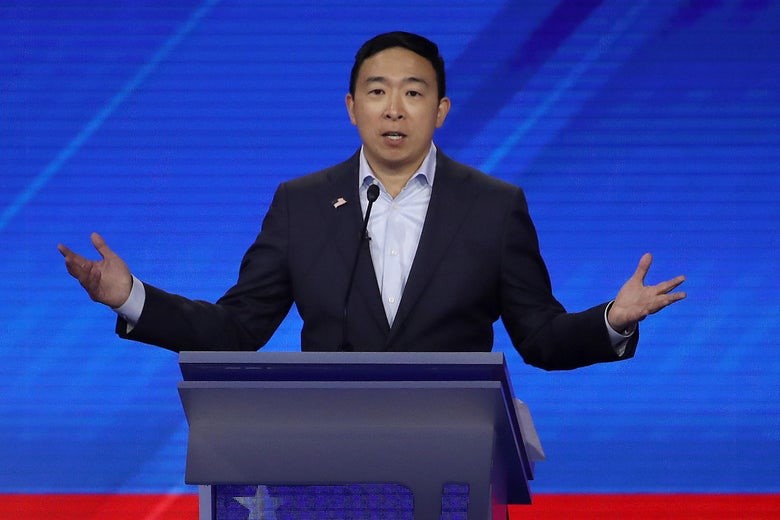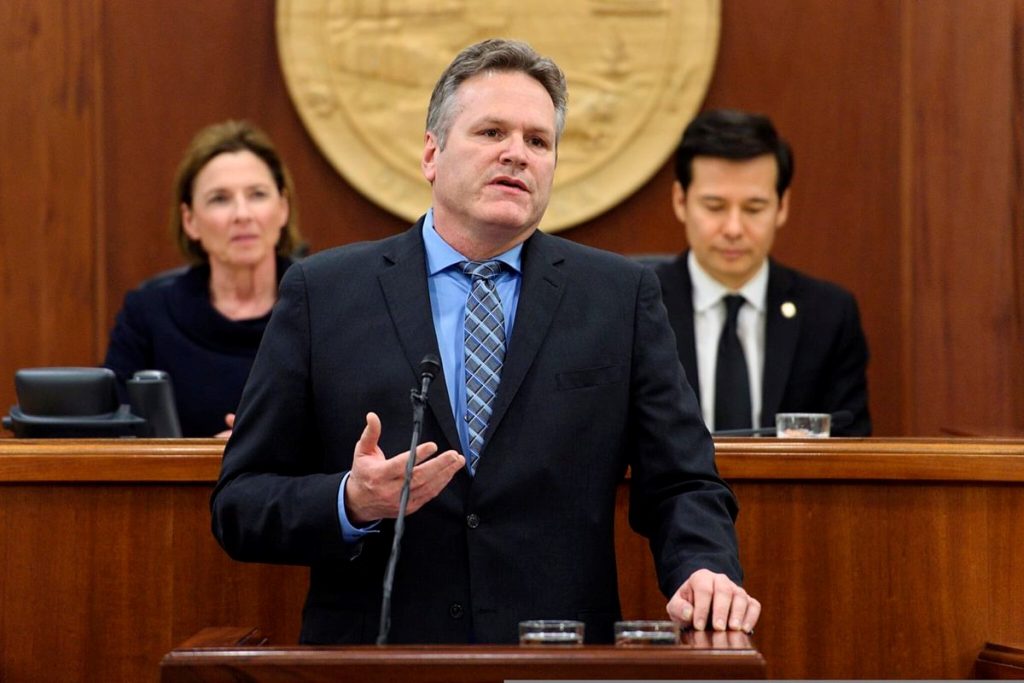‘For even when we were with you, we commanded you this: If anyone will not work, neither shall he eat.’
—2 Thessalonians 3:10
Universal Basic Income is an incendiary concept. Provocative. Controversial.
How you feel about Universal Basic Income largely comes down to where you happen to sit on the political spectrum — liberal or conservative.
If you’re liberal, you’ll be more inclined to believe that everyone deserves a minimum quality of life. So, yes, Universal Basic Income will feel like a godsend to you. A way to even the playing field and fight the rising tide of inequality.
But if you’re conservative, you’ll be more inclined to believe that no one deserves a cent without actively working for it. To you, Universal Basic Income will feel like a slippery slope to laziness. An atrocious idea that should be shunned and condemned.
So, yeah, strong opinions all around.
It sure gets me wondering.
Who’s right? Who’s wrong? And why does it matter so dang much?
The liberal perspective

Andrew Yang, former Democratic presidential candidate. Source: Slate
Right now, the guy who’s courting the most attention for Universal Basic Income has to be Andrew Yang. He’s a former Democratic presidential candidate with a radical idea. He wants to give US$1000 a month to every American above the age of 18.
Appropriately enough, Yang calls his initiative the Freedom Dividend. Uh-huh. Cute moniker. And he wants his concept to be streamlined and people-friendly. Meaning, you will be able to get Universal Basic Income with no questions asked and a minimum of paperwork.
Is his approach idealistic? Naive? A waste of public money?
Well, the thing with Andrew Yang is that he’s no mere career politician. He’s an attorney, a venture capitalist, an entrepreneur. Someone who, at the bare minimum, is able to back up his idea with a corporate point of view.
Yang claims that America is already spending over $500 million a year on a wide range of welfare programmes, as well as a further $1 trillion on healthcare and incarceration.
A colossal sum indeed.
An alternative to government spending
So why not divert some of that astronomical spending into Universal Basic Income? Better yet, why not introduce a European-style Value Added Tax (VAT) on goods and services? In theory, this will secure Universal Basic Income’s place on the American landscape for the future and beyond.
Andrew Yang’s arguments are passionate, driven by emotional urgency. And, yes, he does have some stats to back up his sales pitch.
By 2030, the rise of robotics could mean the end of over 20 million jobs around the world. Manufacturing, as we know it, is undergoing a sea change. And the human dignity of the ordinary American worker is at stake. Homelessness, depression, addiction — a tidal wave of social problems is upon us.
Frankly, that’s the core of Andrew Yang’s message: Restoring human dignity to those who need it the most. For him, Universal Basic Income is unambiguously the answer.
But is it really?
Well, despite the attractiveness of Yang’s platform, he hasn’t gone beyond a cult following. He hasn’t quite swayed moderate Democrats to his cause, let alone others beyond his narrow political spectrum. It’s worth noting that Yang wasn’t even among the front runners for the 2020 Democratic primaries.
Yes, that’s the harsh reality of America’s favourite gladiatorial arena. Idealism only gets you so far. Andrew Yang’s Freedom Dividend — as emotive and mythic as it is — may just have to wait for another election cycle further down the track.
The conservative perspective

Mike Dunleavy, governor of Alaska. Source: Anchorage Daily News
Ironically enough, Universal Basic Income already does exist in the United States, albeit on a very limited scale.
You’ll find it in Alaska, where it’s known as the Permanent Fund Dividend. This year, every resident in that rugged and majestic state will receive a cheque in the mail for US$1606.
Whoa. Hold on. Isn’t Alaska a Republican stronghold? A bastion of conservatism?
Well, hey, it is indeed. And yet, since 1982, Alaska has paid out an average of US$1000 to US$2000 in cash to every man, woman and child.
This all comes out of the revenue the state has generated from its natural resources — oil, gas, minerals. It’s all invested into stocks and bonds, and the profits are then shared with the local population.
Mm-hm. I can hear the gears in your mind shifting already. This sounds very much like the superannuation you might find in Australia and New Zealand. A government-run managed fund.
Socialism by stealth, you might cheekily say. And in a Republican state, no less.
But, of course, the US$1606 annual payment that Alaskan residents will get this year is nothing compared to the US$12,000 annual payment that Andrew Yang is proposing.
The consequences of a handout
Still, in an interesting twist, the local politics in Alaska already foreshadow the kind of problems Universal Basic Income might face if it was ever rolled out nationwide.
Take, for instance, what happened in 2018. Mike Dunleavy ran for governor of Alaska by making a huge promise: he would increase the annual Permanent Dividend Fund payment by up to US$6700.
The end result was predictable. Folks enthusiastically turned up in droves to vote for Dunleavy. And why not? Everyone loves more free handouts.
Mike Dunleavy won, no contest.
Sadly, what happened after that was a lot less appealing. Dunleavy could not live up to his promise. Not without taking a knife to Alaska’s pre-existing budget and ruthlessly cutting down on other state expenditure.
Alaskan legislators soon rebelled against Dunleavy. A tense standoff ensued. Dunleavy was forced to blink and back down. The US$6700 figure was hastily revised.
In the end, residents only got US$1606 in 2019. Not much more than was given to them in the years prior. And for the conceivable future, the fiscal burden on Alaska means that dividend payouts will continue to be modest.
Not quite the nirvana that Mike Dunleavy promised.
Critics often point to this — the slippery slope of political grease — as proof that Universal Basic Income is inherently flawed. Sure, it might win you a state-level election, but it doesn’t necessarily translate to credible results.
The bottom line
The Alaskan experience is a fascinating study in human frailty. When push comes to shove, it doesn’t really matter what your political persuasion is. You’re not immune to being ‘bribed’ with the promise of a free cheque.
In that sense, liberals and conservatives are not that different. They both want to see an improvement of the general quality of life. And they often treat the distribution of public money as a shortcut to achieving that.
Still, the sobering reality is that there will always be a gap between what we want and we can actually afford. We live in a world of finite resources, after all.
Maybe, one day, we will miraculously create a Star Trek-style New World Economy. Infinite resources that will allow us to quash human misery once and for all. But, until then, we’ll just have to humbly contend with our present dilemmas.
So…which side of the fence do you belong to? Do you like the Universal Basic Income concept? Or do you oppose it?
Regards,
John Ling
Analyst, Wealth Morning
PS: If you’re wanting to start working on your own personal Universal Basic Income — from investment as opposed to the mercy of the State — you might want to check out our Vistafolio Wealth Management Service, exclusively designed for Eligible and Wholesale Investors.





John is the Chief Investment Officer at Wealth Morning. His responsibilities include trading, client service, and compliance. He is an experienced investor and portfolio manager, trading both on his own account and assisting with high net-worth clients. In addition to contributing financial and geopolitical articles to this site, John is a bestselling author in his own right. His international thrillers have appeared on the USA Today and Amazon bestseller lists.